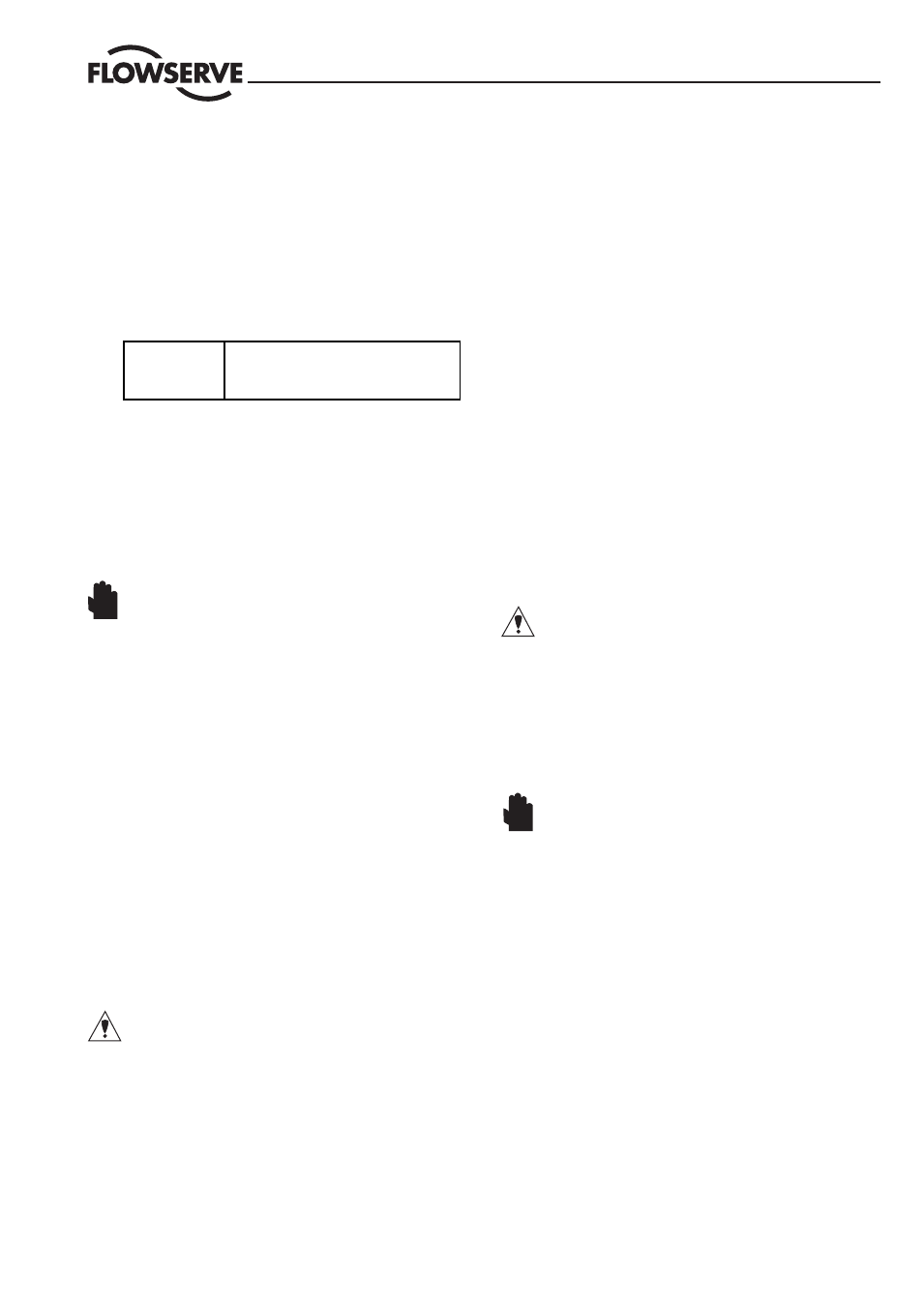Flowserve 132000 Series User Manual
Page 7

7
Flow Control Division
Kammer Control Valves
13
STEM
The valve stem is equipped with a blowout protection
feature. This ensures that the valve stem cannot be
removed from the top of the valve. This is an important
safety factor when the actuator is removed from the
valve, because there would be otherwise no mechanical
restriction.
Table 5: Valve stem materials
Valve stem
1.4571 (standard)
2.4819 (Hastelloy C276) (optional)
14
PACKING
The 132000 valve series has a safety packing to back-
up the bellows seal and to prevent leakage to the out-
side in the event of a bellows rupture.
15
TEST CONNECTION
WARNING:
If the optional test connection (1/4” NPT) is
present, it must be sealed to prevent the medium from
exiting in the event of a bellows rupture.
16
QUICK CHECK
Before operating, check the valve as follows:
16.1
Open and close the valve and observe the movement of
the actuator stem. The movement should be smooth
and linear.
16.2
Check the minimum stroke by changing the control
signal (for pneumatic position regulator 0.2 – 1.0 bar or
corresponding “split range” values for IP position
regulator 4-20 or 0-20 mA).
16.3
Check all air connections for leaks.
16.4
Check the packing nut (see Table 8).
CAUTION:
An excessively tightened gland nut can
cause excessive packing wear and can hinder the free
movement of the plug stem.
16.5
Check fail-safe position. To do this, close supply pres-
sure and observe whether the valve opens or closes as
defined.
16.6
After use under varying temperatures, retighten all
threaded connections and check for leaks.
17
MAINTENANCE
Check for proper function at regular intervals as follows.
These checks can be accomplished in the installed state
and, in many cases, without shutting down production.
If internal defects are suspected, see section
“Disassembly and assembly of valve”.
17.1
Check gaskets for leakage and retighten bolts if required
(see Fig. 1).
17.2
Check bellows seal, test connection and body drain
screw – if present – for leakage to the outside.
17.3
Check valve for damage resulting from corrosive
process residues or corrosive vapors.
17.4
Clean valves and repaint as required.
17.5
Check packing nut (see Table 8).
CAUTION:
An excessively tightened gland nut can cause
excessive packing wear and can hinder the free
movement of the plug stem.
17.6
If possible, open and close valve and check for
maximum stroke and ensure that the plug stem moves
without jerking. Irregular motion of the plug stem can
indicate an internal defect
WARNING:
..Keep hands, hair, clothing, etc. away from
all moving parts. Failure to observe can lead to severe
injuries.
17.7
Ensure that all accessory parts are seated tightly.
17.9
Connect air supply and check safety position.
17.10 Check air filter, if present, and replace element as
necessary.
STOP!
STOP!